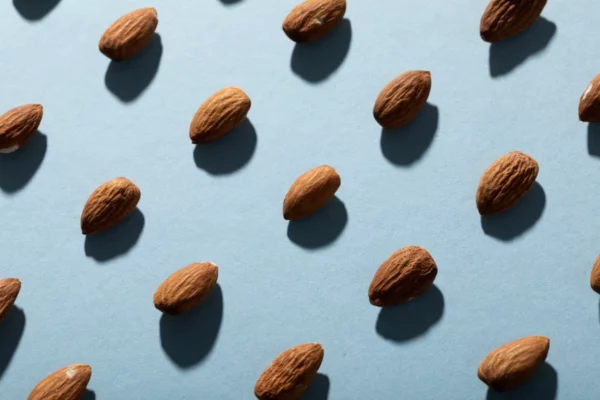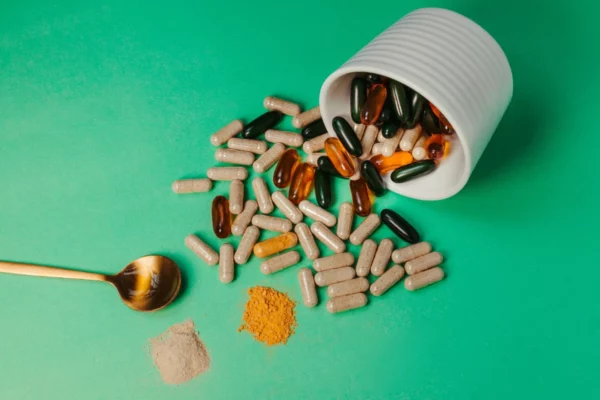Athletes, whether professional or recreational, are constantly seeking ways to optimize their performance. While training, rest, and recovery play pivotal roles, an often overlooked aspect is the importance of dietary fiber. Dietary fiber, found abundantly in various plant-based foods, offers many benefits that can significantly impact an athlete’s overall health and athletic performance. In this comprehensive guide, we will explore the different types of dietary fiber, high-fiber foods, and their profound effects on the digestive tract, energy levels, immune system, heart health, and more.
Understanding Dietary Fiber
Dietary fiber, commonly called “fiber,” is a carbohydrate found exclusively in plant-based foods. It’s a complex structure that the human body cannot digest or absorb. Instead, it passes through the digestive system largely intact, which is crucial in maintaining digestive health and overall well-being.
There are two main types of dietary fiber: insoluble fiber and soluble fiber.
Insoluble Fiber:
Insoluble fiber does not dissolve in water and adds bulk to the stool. It promotes regular bowel movements, prevents constipation, and helps maintain a healthy digestive system. Athletes often benefit from efficient digestion to ensure their bodies absorb nutrients optimally.
- Whole grains like brown rice and whole wheat are excellent sources of insoluble fiber, providing essential roughage for a healthy digestive tract.
- Vegetables like broccoli, Brussels sprouts, and cauliflower are rich in insoluble fiber, aiding in digestion and providing nutrients vital for athletes.
Soluble Fiber:
Soluble fiber dissolves in water to form a gel-like substance. This type of fiber can help lower cholesterol levels, stabilize blood sugar, and provide a steady energy source. For athletes, maintaining stable blood sugar levels is crucial for endurance and consistent energy supply.
- Foods like oats, chia seeds, and beans are packed with soluble fiber, offering athletes a sustained release of energy.
- Fresh fruits such as apples, oranges, and berries contain soluble fiber, which contributes to maintaining optimal blood sugar levels.
The Benefits of High-Fiber Diets for Athletes
Now that we understand the types of dietary fiber, let’s delve into the numerous benefits that high-fiber diets offer athletes.
- Enhanced Digestive Health:
Athletes require efficient digestion to extract essential nutrients from their diets. High-fiber foods, particularly those rich in insoluble fiber, promote regular bowel movements and prevent gastrointestinal discomfort. This is vital for athletes, ensuring they can effectively fuel their bodies and recover after intense training sessions. - Sustainable Energy:
Soluble fiber-rich foods help stabilize blood sugar levels, providing athletes with a consistent and sustainable energy supply. This is especially important for endurance athletes who need to maintain their performance over extended periods. - Heart Health:
High-fiber diets have been linked to a reduced risk of cardiovascular diseases. Soluble fiber helps lower LDL cholesterol levels, a key contributor to heart disease. By incorporating fiber-rich foods like oats, beans, and fruits into their diets, athletes can support their cardiovascular health. - Immune System Boost:
A healthy gut microbiome is essential for a robust immune system. High-fiber diets promote the growth of beneficial gut bacteria, enhancing immune function. This is particularly important for athletes, as intense training can temporarily weaken the immune system. - Weight Management:
Maintaining an optimal body weight is crucial for athletic performance. High-fiber foods help control appetite and promote satiety, reducing the risk of unhealthy weight gain. Athletes can benefit from fiber’s role in weight management by incorporating it into their daily diet. - Blood Sugar Regulation:
Consistently stable blood sugar levels are essential for athletes. Soluble fiber slows the absorption of sugar into the bloodstream, preventing rapid spikes and crashes in energy. This ensures athletes remain focused and energized during training and competitions. - Gut Microbiota Balance:
The gut microbiome plays a crucial role in overall health. High-fiber diets support a diverse and balanced gut microbiota, contributing to improved digestion, nutrient absorption, and overall well-being.
How Much Fiber Do Athletes Need?
The recommended daily fiber intake varies based on factors like age, sex, and activity level. Athletes, who often have higher energy requirements, should aim for an adequate fiber intake to support their nutritional needs and overall health.
For most adults, including athletes, a daily intake of 25 to 38 grams of fiber is recommended. However, specific requirements may differ depending on individual goals, training intensity, and calorie needs. Athletes should work with a sports nutritionist or dietitian to determine their optimal fiber intake and tailor their diet accordingly.
Best Sources of High Fiber for Athletes
Now that we understand the importance of dietary fiber let’s explore some of the best sources of high fiber for athletes to incorporate into their diets:
- Whole Grains:
Whole grains like brown rice, quinoa, gluten-free pasta, and oatmeal are excellent sources of both soluble and insoluble fiber. These foods provide essential carbohydrates for energy and promote digestive health. - Beans and Legumes:
Black beans, chickpeas, lentils, and other legumes are fiber-rich and provide plant-based protein, making them ideal for athletes looking to build and repair muscle. - Fresh Fruits:
Fresh fruits like apples, pears, oranges, and berries are not only delicious but also high in soluble fiber. They make for perfect pre- and post-workout snacks. - Vegetables:
Incorporate fiber-rich vegetables such as broccoli, spinach, kale, sweet potatoes, and Brussels sprouts into your meals. These vegetables are packed with essential nutrients and promote overall health. - Chia Seeds:
Chia seeds are an excellent source of soluble fiber and are also rich in omega-3 fatty acids, which support heart health. Add them to your overnight oats, smoothies, or yogurt for a fiber and nutrient boost. - Fiber-Rich Breakfast Cereals:
Opt for whole-grain and high-fiber breakfast cereals to kickstart your day with a fiber boost. Just ensure they are low in added sugars to maintain a healthy diet. - Nuts and Seeds:
Almonds, flaxseeds, and sunflower seeds are high-fiber snacks that provide healthy fats and energy for athletes on the go. - Fiber Supplements (as needed):
In some cases, athletes may struggle to meet their fiber requirements through whole foods alone. In such instances, a fiber supplement may be considered, but it’s crucial to consult with a healthcare professional or dietitian before doing so.
Balancing Fiber Intake with Athletic Performance
While a high-fiber diet offers numerous benefits, athletes should be mindful of when they consume fiber-rich foods in relation to their training and competitions. Here are some tips to strike the right balance:
- Pre-Workout:
Consume a meal or snack rich in carbohydrates and moderate in fiber 1-2 hours before a workout. This ensures that the body has a readily available source of energy without causing digestive discomfort. - Post-Workout:
After exercise, focus on replenishing carbohydrates and protein to support muscle recovery. Including some fiber-rich foods is fine, but avoid excessive fiber immediately after intense workouts to allow for efficient nutrient absorption. - Race Day:
On race days or during competitions, opt for easily digestible, low-fiber meals to minimize the risk of gastrointestinal distress. Save high-fiber meals for recovery periods. - Daily Diet:
On non-training days, athletes can incorporate a wide variety of high-fiber foods into their daily diet to promote overall health and well-being.
Conclusion
Dietary fiber, in its various forms, is a key nutrient for athletes looking to optimize their performance and maintain their overall health. By incorporating a variety of high-fiber foods into their diets, athletes can enjoy enhanced digestive health, sustained energy levels, a stronger immune system, and a reduced risk of chronic diseases.
It’s important for athletes to strike a balance between fiber intake and their specific training and competition needs. Consulting with a sports nutritionist or dietitian can help tailor a fiber-rich diet that supports both athletic performance and long-term well-being.
In summary, dietary fiber is not just a buzzword; it’s a powerful ally for athletes striving for excellence in both their sport and their health. By harnessing the benefits of high-fiber foods, athletes can fuel their bodies for success and achieve their fitness goals.









